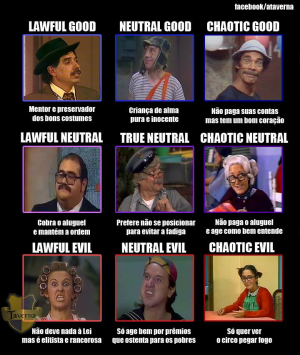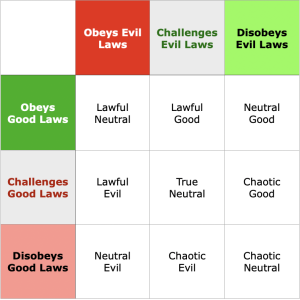Yousef
Local Gal Gun Psychopath!
- Joined
- Sep 2, 2025
- Messages
- 208
Traditionally a D&D topic that seeped its way into all forms of media, morality alignment is something I find truly fascinating.
This is s topic thread dedicated to the philosophical questions that these alignments would imply.
What’s the objectively best moral trajectory? What’s the most appealing?
Is chaotic evil truly incapable of redemption? Is lawful good truly devoid of evil or is it a facade? Is neutral good really the best state of mind? Is chaotic good equally delusional? Why is chaotic neutral so fun to write? Is true neutral really that hard to nail down?
I want your answers!
This is s topic thread dedicated to the philosophical questions that these alignments would imply.
What’s the objectively best moral trajectory? What’s the most appealing?
Is chaotic evil truly incapable of redemption? Is lawful good truly devoid of evil or is it a facade? Is neutral good really the best state of mind? Is chaotic good equally delusional? Why is chaotic neutral so fun to write? Is true neutral really that hard to nail down?
I want your answers!


